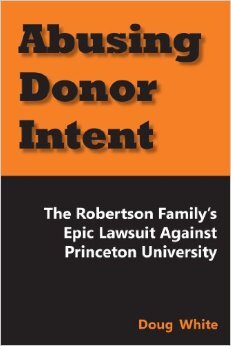Unhappy Donors More Willing to Ask for a 'Refund'
According to philanthropy experts, more and more donors are asking for "refunds" of gifts they feel have been misused, ignored, or spent in a way other than was intended, the Wall Street Journal reports.
The ease with which financial data can be accessed on the Internet, as well as a series of high-profile court battles featuring donors or their heirs demanding the return of a gift, are behind the shift, Doug White, director of Columbia University's graduate program in fundraising management, told the Journal. "Donors are becoming savvier, [and] they are becoming more engaged in how their money is being used," added White.
There also has been a change in the way many jurisdictions handle such cases. While U.S. law historically has been based on the principle that once a gift is given, it can't be taken back, some courts are beginning to view donors' rights more favorably, the Journal reports. Still, charitable regulations vary by state, and different courts have different rules on whether a donor has "standing," or permission to bring a dispute before the court. "About thirty states have the Uniform Trust Code, which authorizes donor standing to enforce a charitable trust," said Robert Sitkoff, a professor at Harvard Law School who studies wills, trusts, and estates, but "a New York court has gone further, recognizing donor standing to enforce other kinds of charitable gifts, too."
As a donor, the best way to protect your right to a "refund," the Journal reports, is to draft a charitable gift agreement that includes a "gift over" clause that permits you to request a transfer of the gift to another charity in the event of its misuse, said Winton Smith, a lawyer who works with charitable organizations to set up planned-giving programs. Such agreements, Smith added, should also give you the right to sue in order to enforce the terms of the gift. There are consequences, however, to demanding the refund of a gift, including loss of the charitable tax deduction on the gift and having to pay taxes on the gift at your current marginal rate.
Before things reach that point, most gift-related disagreements can be settled by having a conversation, said Eileen Heisman, president and CEO of the National Philanthropic Trust. "Are [your dissatisfied thoughts] emotional or intellectual?" said Heisman. "Are they actually based on what the charity is doing, or is this a personnel issue?" Perhaps the most important thing to keep in mind is how asking for a gift back will make you feel in the long run, she added. "It all comes down to one question. How do you want to be remembered?"





